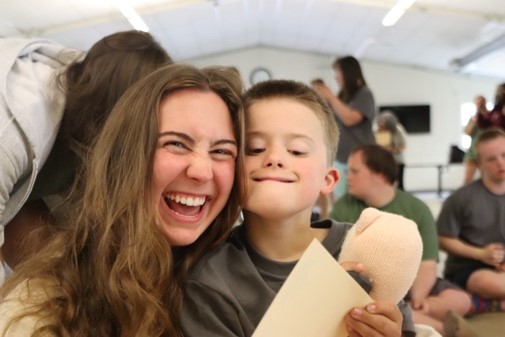Therapeutic Recreation Mission Statement:
The mission of the Therapeutic Recreation Program at the University of Tennessee is to prepare students with the necessary knowledge, skills and abilities to work with delivering therapeutic recreation to special populations, learn to use various interventions to treat physical, social, cognitive, and emotional conditions associated with illness, injury, or chronic disability, and learn the academic component which will enable you to pass the NCTRC national exam.
Vision:
Provide students with a quality academic experience by emphasizing experiential learning with a diverse faculty knowledge base.
Core Values:
- To foster holistic education and professional preparation of students through practical experiences, outreach and engagement, and service learning activities
- To produce high quality professionals through a comprehensive curriculum
- To foster excellence in research and scholarship by engaging undergraduate and graduate students in collaborative research projects
- To foster the growth and development of the concentration and profession as a whole
- To encourage participation in opportunities that expand our regional and national presence
Strategic Plan:
Goal 1: Provide other opportunities for service-learning and practica and internships to meet the diverse needs and interests of students. The Therapeutic Recreation concentration has grown tremendously over the past five years and to continue to provide students with a comprehensive education the following two areas must be addressed: (1) explore an additional service-learning course to accommodate growth and (2) identify additional sites for internships and practica.
Goal 2: Identify gaps in knowledge and skills and modify curriculum to continue to produce high quality professionals through a comprehensive curriculum. To prepare students with the knowledge and skills needed to be a high quality professional, the Therapeutic Recreation concentration curriculum needs to remain current. We have identified two areas that will help meet this goal: (1) review NCTRC reports/Student self-assessment from Guidelines for Competency Assessment and Curriculum Planning in Therapeutic Recreation: A Tool for Self-Evaluation and (2) host an annual Fall faculty retreat to examine curriculum and assessment results.
Goal 3: Strengthen our capacity and productivity in research, scholarship, and creative activity to better educate our students. Seek additional funding opportunities to help engage students in research. To provide students with research experience, the faculty will devise and explore research opportunities for undergraduates and graduates to be engaged in research. Students will be expected to engage in data collection and entry.
Goal 4: Encourage students to attend and present research at local, regional and national conferences. The Southeast Recreation Therapy Symposium (SRTS), American Therapeutic Recreation Association (ATRA) annual conference, and National Recreation Park Association Annual conference are excellent opportunities for students to meet students, practitioners, and scholars to continue to learn more about the recreation therapy profession. These conferences provide opportunities for students to disseminate research and network for internship and job placement. Students will also be encouraged to apply for scholarship opportunities through each respective conference to cover travel expenses.
Goal 5: Extend the reputation and recognition of our department to practitioners, scholars, and East Tennessee. The Therapeutic Recreation concentration strives to be the premier recreation therapy program and increase our standing.
An undergraduate degree in therapeutic recreation prepares students for employment in management and leadership positions with agencies that deliver health care services. Students are successful in securing employment in psychiatric institutions, physical rehabilitation units, drug and alcohol treatment centers, community-based programs, long-term care facilities, outdoor and school-based programs, and children’s programs. Graduates fulfill the eligibility requirements for the National Council for Therapeutic Recreation Certification. During the 2019-2021 testing period, our therapeutic recreation students had a 95% pass rate on the CTRS exam which is higher than the national average.
In addition to an undergraduate degree with a concentration in therapeutic recreation, the program offers a number of camps and activities serving our community. Visit our Camp Information page for more details.
